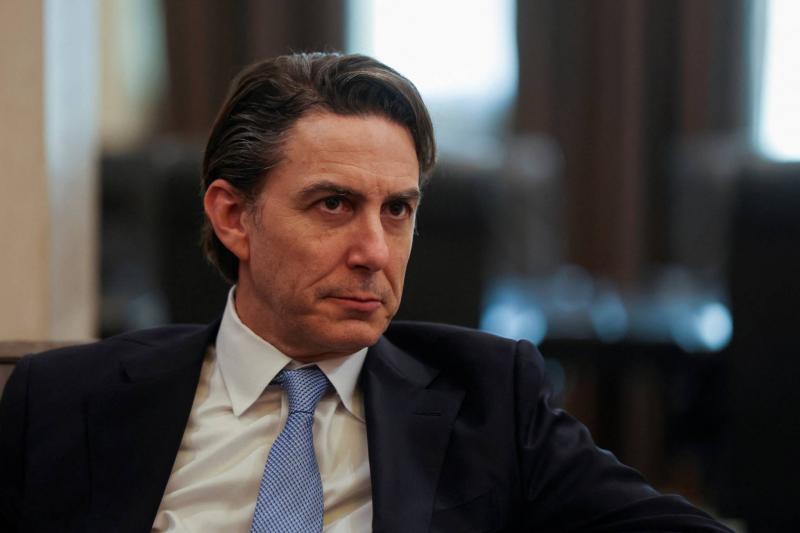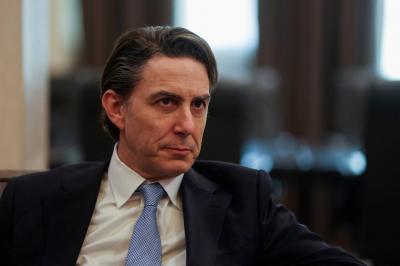Most of the indicators, messages, and data available in recent hours suggest that the situation in Lebanon and the region remains within the framework of controlled low-level conflicts and wars. The main parties involved, specifically the United States and Iran, do not wish for these conflicts and wars to expand or intensify. Some of this information was revealed and discussed by Amos Hochstein, a personal advisor to the U.S. President, who may soon head to Beirut. In an interview on the program "Face the Nation," he stated: "We are in a low-level conflict between Israel and Lebanon, and President Biden has been clear that we want to do everything we can to prevent this conflict from escalating from a lower level to a comprehensive conflict, which could drag us into further war and jeopardize the lives of civilians on both sides. What we are trying to do is avoid that." Hochstein also mentioned a two-tier goal in Lebanon: "First, to stop hostilities between the parties in Lebanon and Israel." He added, "Once we do that, we need to start looking at how to demarcate the borders, which are actual borders, between the two countries so that we can achieve long-term security and long-term peace in a region that has seen many rounds of conflict over the past few years."
One hour before reports on the attack against U.S. troops this morning, Hochstein remarked on "Face The Nation": "We should all be very concerned about a second front of the war … We are trying to avoid that." This indicates that the current working phase involves stopping hostilities, followed by demarcation and definition of land borders.
Just hours after these statements, the Israeli newspaper Yedioth Ahronoth reported that "the Israeli army has decided to reduce its forces stationed in areas adjacent to the Lebanese border." It explained that "local security teams will handle the security incident response in the areas adjacent to the border with Lebanon." This approach was not limited to the Lebanon front only, as developments in the region were also reported. For instance, the Iraqi armed group Hezbollah announced that it will suspend its military and security operations against American forces to avoid embarrassing the Iraqi government, following the repercussions of the first attack that caused U.S. casualties since the outbreak of the Al-Aqsa Flood on October 7. This statement from the Iraqi Hezbollah came amid rising tensions after the U.S. base in Al-Tanf, on the Jordanian-Iraqi border, was attacked by a drone, leading to injuries and fatalities among U.S. troops.
What can be inferred from these data, based on Hochstein's approach, is that both the United States and Iran have used their influence with their allied parties to calm things down, stabilize conditions, and prevent them from escalating into widespread chaos, with Iran aligning with Iraqi Hezbollah and the U.S. cooperating with the Israeli army, which has reduced its troop presence near the border with Lebanon.
At the military level, the situation is changeable and could become disorganized if Israel decides to act recklessly, especially given that the U.S. administration is heading into a presidential election phase, which presents multiple unknown options.
However, at the political level, the main parties in Lebanon have maintained their positions, alongside the ambassadors of the quintet in Beirut in their first serious move, which consisted of meeting with Speaker of Parliament Nabih Berri in Ain El-Tineh after a preliminary session in the Saudi ambassador's tent in Yarzeh. Available information indicated that the main aim of the ambassadors from the five countries is a specific position and message that focuses on discussing specifications, and not names, appearing as a unified agreement.
In contrast, the duo of "Amal Movement" and "Hezbollah" continues to support Sleiman Frangieh, amid the beginnings of a political media offensive against the commander of the army, whose term has been extended. This follows information suggesting support for his candidacy from the United States, Saudi Arabia, and Qatar, which David Hale regarded as the man for the phase.
This statement implies that the quintet does not want to publicly discuss names while the "national duo" continues to dominate and obstruct the election sessions with a white card and the disruption of the quorum, sticking to their candidate, the head of the "Merdeh Movement," in opposition to others and potential candidates, from Jihad Azour to Joseph Aoun or others if announced.
The second conclusion is that the controlled confrontation and low-level conflicts in the region, at several sites, except for the besieged Gaza which is left to its fate, will require the concerned parties to work hard to keep it under control, extending to Lebanon, which may have to wait long for its presidential vacancy and plight, until the settlements and discussions underway in various places in the region and the world mature, starting from Oman, passing through Doha and Cairo, until reaching Paris. As the common saying goes, "We develop, oh my dear!"




